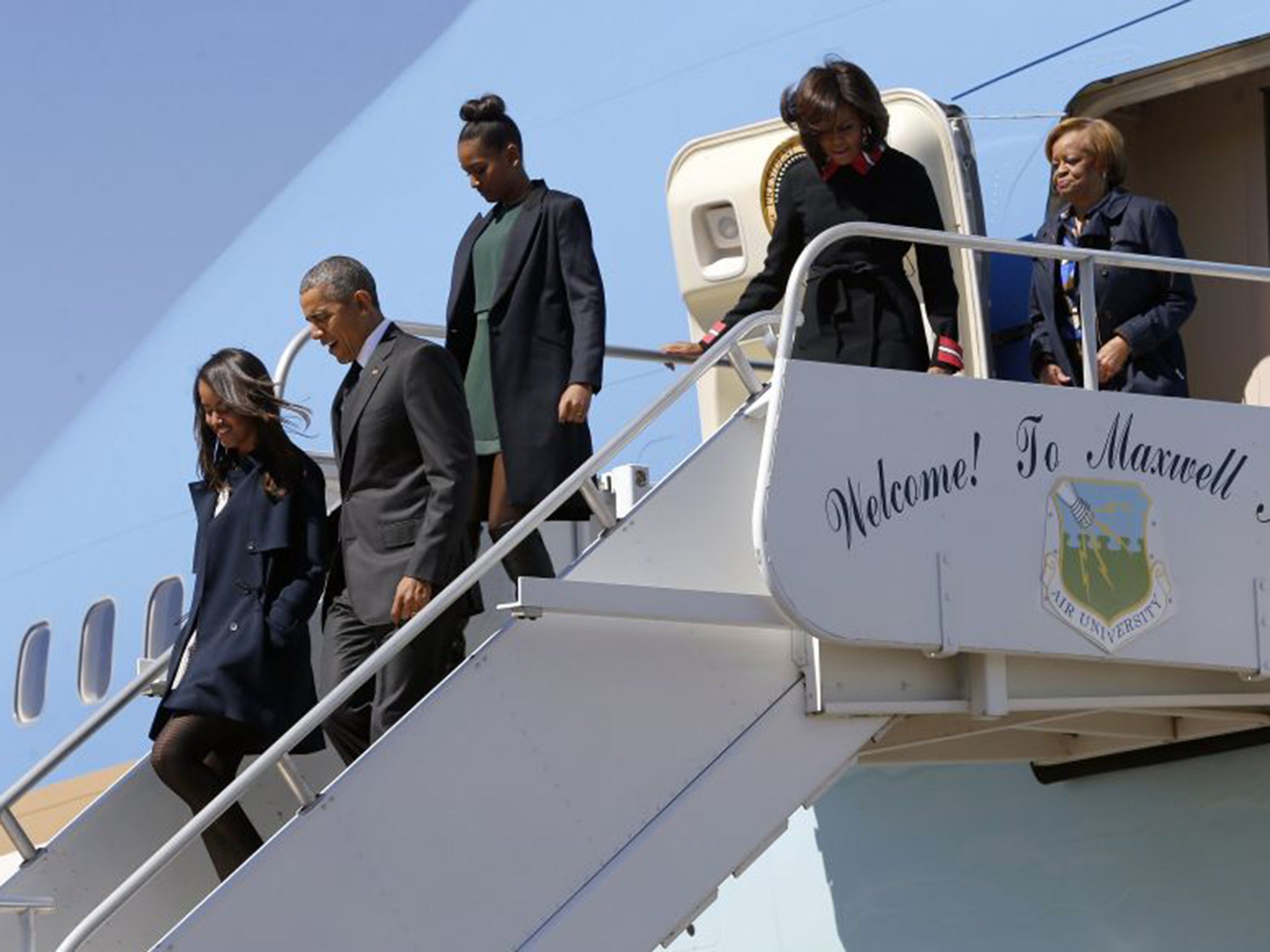Selma anniversary: Fifty years on, thousands gather to remember a defining moment of America's civil rights movement
President Obama makes symbolic first visit since taking office to commemorate march that demanded an end to discriminatory polling practices

Thousands of people gathered in Selma yesterday as part of a weekend of commemoration for the 50th anniversary of one of the defining moments of the US civil rights movement – with President Barack Obama making a symbolic first visit since taking office.
Alongside Mr Obama and the First Lady, about 100 members of the US Congress were set to converge on the town to mark the day in 1965 when marchers attempting to walk from Selma to Montgomery to demand an end to discriminatory polling practices were attacked by police.
The violence, on Sunday 7 February, preceded the Selma-to-Montgomery march, which occurred two weeks later. Both helped to build momentum for congressional approval of the Voting Rights Act later the same year – legislation that planned to remove the barriers preventing black people from registering as voters.
The gathering, with events also set to continue today, has a particular resonance with recent events in Ferguson, Missouri, where a black man was shot by a white officer last year, setting off protests. It is one of a number of incidents across the county that has sparked a debate about policing and race in the US.
The commemorations will be seen as a healing exercise by some, while others see it as a springboard into the future.
It is this theme of the future that Mr Obama – who was set to give a speech last night at the Edmund Pettus Bridge where the 1965 crackdown took place – is hoping to accentuate.
“Selma is not just about commemorating the past. It’s about honouring the legends who helped change this country through your actions today, in the here and now,” he said at an event ahead of his visit to Alabama.
“Selma is now. Selma is about each of us asking ourselves what we can do to make America better,” he added. As the nation’s first black President, Mr Obama has received pressure from some quarters to use the occasion of the anniversary to take a stand over issues such as discriminatory policing.
Madeline McCloud travelled through the night from central Florida to join those flocking to Selma, saying she was both honouring the past and teaching young people about the importance of protecting civil rights. “For me, this could be the end of the journey, since I’m 72,” she said. “I’m stepping back into the history we made.”
Ms McCloud travelled with Dennet Sails, who at 40 is trying to teach young black people about what it took to gain equal rights in the US. “I want to make sure I understand the past so I can plan the future,” said Ms Sails.
Alabama’s governor, Robert Bentley, was on hand for the anniversary, and said he hoped it could help the state to erase ugly images and heal wounds dating back generations.
“Alabama has been behind the curve not just for 50 years, but for 150 years,” Mr Bentley said. “We are just now starting to get out from under the stigma.”
AP
Join our commenting forum
Join thought-provoking conversations, follow other Independent readers and see their replies
Comments
Bookmark popover
Removed from bookmarks